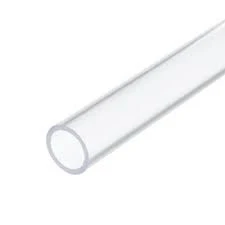Dec . 18, 2024 16:00 Back to list
hdpe pipe for drip irrigation
HDPE Pipe for Drip Irrigation A Sustainable Solution for Modern Agriculture
In the ever-evolving field of agriculture, the demand for efficient water management systems has never been more critical. Water scarcity is a pressing issue in many parts of the world, and traditional irrigation methods often lead to significant water loss due to evaporation and runoff. Drip irrigation, a highly efficient watering method, has emerged as a solution, and one of the most effective materials used in its implementation is High-Density Polyethylene (HDPE).
Understanding HDPE
High-Density Polyethylene, or HDPE, is a versatile thermoplastic known for its high strength-to-density ratio. It is widely recognized for its durability, resistance to impact, and ability to withstand harsh environmental conditions. These properties make HDPE an ideal choice for various applications, including piping systems. When used in drip irrigation, HDPE pipes offer numerous advantages that contribute to sustainable farming practices.
Benefits of HDPE Pipes in Drip Irrigation
1. Water Efficiency The primary advantage of drip irrigation is its ability to deliver water directly to the plant roots, minimizing evaporation and runoff. HDPE pipes facilitate this process by providing a reliable, leak-free transport system that ensures efficient water distribution. By using HDPE pipes, farmers can reduce water usage by up to 50% compared to traditional irrigation methods, making it an environmentally friendly choice.
2. Longevity and Durability HDPE is resistant to corrosion, chemicals, and UV radiation. This resistance extends the life of the piping system, reducing the need for frequent replacements and repairs. HDPE pipes can last for over 50 years, making them a cost-effective option in the long run. Their strength also allows them to withstand high pressures, which is crucial for effective drip irrigation systems.
3. Flexibility and Easy Installation HDPE pipes are lightweight and flexible, making them easy to handle and install. This flexibility allows for the creation of custom layouts to accommodate various field sizes and shapes. Unlike rigid piping materials, HDPE can bend and conform to the terrain, reducing the need for extensive excavation or alterations to the existing landscape.
hdpe pipe for drip irrigation

4. Resistance to Clogging The smooth interior surface of HDPE pipes minimizes friction and reduces the likelihood of sediment buildup and clogging. This is particularly important in drip irrigation, where emitters can frequently become blocked by debris or mineral deposits. By ensuring a steady flow of water, HDPE pipes contribute to the overall efficiency of the irrigation system.
5. Sustainability As agricultural practices shift towards more sustainable methods, the use of HDPE piping aligns with this vision. HDPE is recyclable, which helps to reduce waste and promotes a circular economy. Additionally, the increased water efficiency associated with drip irrigation helps conserve this precious resource, contributing to sustainable water management practices.
Challenges and Considerations
While HDPE pipes offer many benefits for drip irrigation, there are considerations to keep in mind. Proper design and installation are essential to maximize efficiency and effectiveness. Farmers should work with irrigation specialists to ensure the system is appropriately designed for their specific crop needs and local environmental conditions.
Moreover, while HDPE is generally resistant to chemical degradation, some agricultural chemicals may cause issues. Farmers should be aware of the substances being used and consult with experts to avoid potential problems.
Conclusion
The application of HDPE pipes in drip irrigation represents a significant advancement in agricultural practices, particularly in the context of global challenges like water scarcity and sustainable farming. By enabling efficient water use, enhancing the longevity of irrigation systems, and promoting environmentally friendly practices, HDPE pipes are becoming an essential component of modern agriculture. As we continue to face the complexities of climate change and resource management, investing in technologies such as HDPE piped drip irrigation will be crucial for the future of sustainable food production.
-
Transparent PVC Pipe: Clear Flexible Tubing for Fluids
NewsAug.09,2025
-
Durable PP Rigid Sheet: Versatile & High-Quality Plastic Panels
NewsAug.08,2025
-
Premium Glossy PP Rigid Sheet – Durable & Versatile
NewsAug.07,2025
-
High-Quality HDPE Sheet | Durable Plastic Panels
NewsAug.06,2025
-
High-Precision PVC Rigid Sheets for Vacuum Forming | AI-Optimized
NewsAug.05,2025
-
Durable PVC-M Water Supply Pipes | 60-Year Life
NewsAug.04,2025

